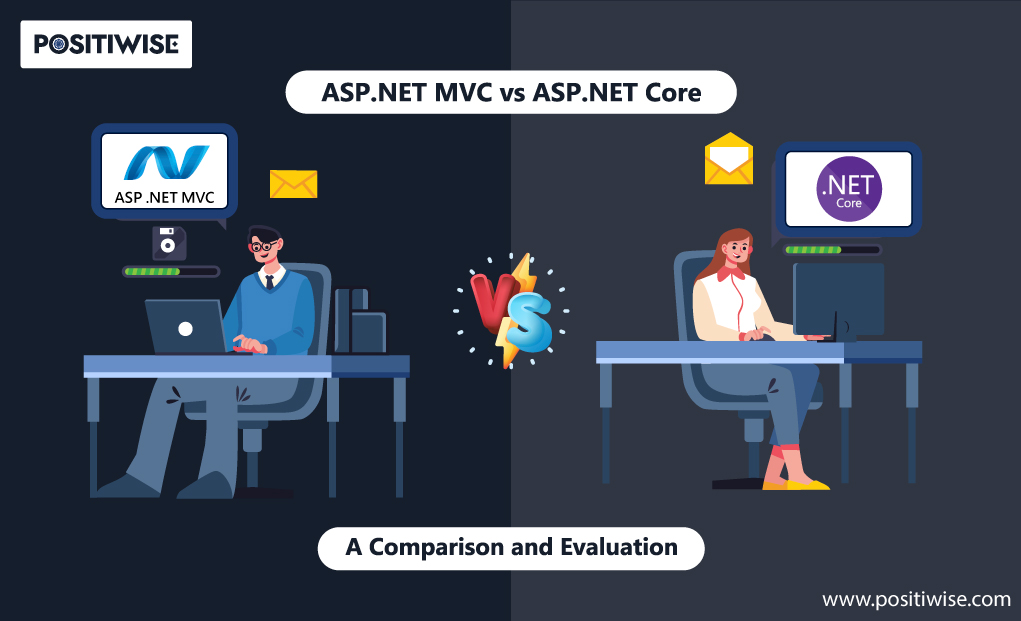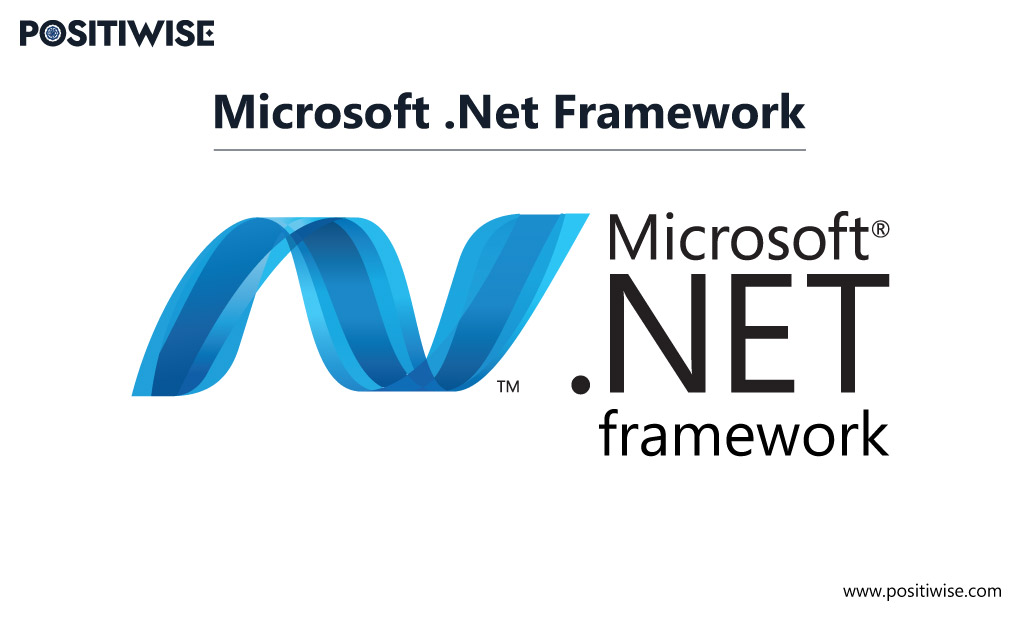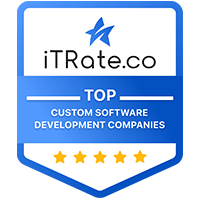Quick Overview:
ASP.NET MVC vs ASP.NET Core: This blog will help you discover the ASP.NET MVC framework and ASP.NET Core platform, as well as the differences between them. You will understand the core features, benefits, and characteristics of these .NET technologies. It will help you choose the right tech for developing the enterprise application for improved metrics.
Introduction
ASP.NET MVC framework and ASP.NET Core are the two prominent Microsoft technologies. Both are used to develop enterprise-grade applications for SMEs and Fortune 500 companies. But, with the advancements in business and technical aspects, firms find it complex to choose between the two for software development.
But clarity is needed, as this blog will help you understand all the factors focusing on ASP.NET MVC vs ASP.NET Core. As a result, you will know which technology is best for you in the current and extended run.
What is ASP.NET MVC Framework?
The ASP.NET MVC framework resides among the other .NET development technologies and is used to create dynamic business applications. This framework enables the developers to leverage MVC architecture – Model, View, and Controller layers. It helps to efficiently and individually manage the backend, interface, and logic that bind all components together.
The Model layer helps manage all the data, primarily streamlining the data storage and retrieval operations. Further, the View layer supports rendering and updating the user interface when data changes or an update is received. Lastly, the Controller layer is responsible for managing the routing, user requests, and other operational tasks.
In addition to this, MVC architecture makes it impeccable for the development team to test the application, discover loopholes, and patch them. Even if a bug is identified in a production environment, it is fixed without affecting other layers’ functionality.
Currently, MVC5 is the latest ASP.NET MVC framework version, and it’s widely used by developers globally. However, professionals may soon start switching from ASP.NET MVC to ASP.NET Core. And we’ll discuss the reasons for it in our further section.
What is ASP.NET Core Framework?
ASP.NET Core is a development platform, developed by same organization like ASP.NET MVC, i.e. Microsoft. It’s an open-source technology in the .NET stack used to create cross-platform compatible applications. Mainly, it enables the use of C# programming language and .NET capabilities to curate business applications.
The ASP.NET Core holds avant-garde functionalities, leading programmers to build web applications, REST APIs, software based on microservices architecture, and container-based apps. Also, it can be utilized to enable full-duplex real-time communication between client and server.
Furthermore, with ASP.NET, you don’t require any additional components, as it helps you extend the .NET platform and take advantage of its programming languages, libraries, and tools. Since the release of the first version of ASP.NET Core in 2016, it’s been one of the most popular development platforms. Its performance, security, platform compatibility, modernity, and open-source architecture are some of the main reasons behind it.
Additionally, ASP.NET Core doesn’t bind the organizations to completely depend on it. The platform can be used as a part of the application to support some specific functions. However, other technologies used in the software must be compatible so that utmost speed, security, scalability, and stability can be maintained.
The Difference Between ASP.NET and ASP.NET Core
In this section, we’ll first understand the current state of the ASP.NET MVC framework. It’ll help you gain a better insight into the details provided further.
According to .NET veterans and information from Microsoft, the current version is the last version of the ASP.NET MVC framework, which is MVC5. Once the support for ASP.NET MVC 5 ends, no official update to any of its components will be provided. Only the pre-published guides, tutorials, and support documents will be available.
As of now, Microsoft hasn’t officially announced the end of support for ASP.NET MVC 5. But, once it’s declared, companies will only have a year to migrate to another technology or platform. Due to this, the ASP.NET MVC framework is not recommended now. Even the ASP.NET MVC Development Company is moving to ASP.NET Core to gain new customers and support the current ones better.
In addition, ASP.NET Core is better than ASP.NET MVC in numerous aspects.
ASP.NET Core is supported by Windows, Linux, macOS, and Docker containers. At the same time, ASP.NET MVC is only supported by the Windows operating system. ASP.NET Core helps you save money and time and also leverages to maintain your service availability across all significant OS platforms.
Moreover, ASP.NET Core leverages the latest Razor page development, which is simpler to use as compared to the ASP.NET MVC framework. It also aids with a unified programming model, tag helpers, view components, dependency injection support, and smaller project structures. Also, it’s open-source, meaning you can make your own versions and customize the core components per requirements.
Due to all the features, benefits, and complete assurance of long-term support from Microsoft, ASP.NET Core wins this battle. So, you should choose ASP.NET Core instead of ASP.NET MVC framework.
The Benefits of Web Application Development with ASP.NET Core Framework
As we know, ASP.NET Core is better, and it’s the future instead of ASP.NET MVC framework. So, let’s discover its prominent features, benefits, and characteristics, supporting the ASP.NET Core to take an edge.
Platform Compatibility
ASP.NET Core works on all the major operating systems and container platforms. You can run an ASP.NET Core application on Windows, macOS, and Linux-based devices. You can continue to use the current app server operating system, as your software will be highly compatible with it.
In addition, deployment on microservices architecture becomes easier, as the Docker container platform supports ASP.NET Core. Due to this, you can easily target your customers using different operating systems. And you will also save money because you will be investing only in developing and maintaining a single ASP.NET Core application.
Further, there’s an additional advantage of cross-platform compatibility. You can deploy the ASP.NET Core application on hybrid environments, such as on a combination of cloud and on-premises infrastructure.
Cloud Supporting Components
The cloud environment is a primary necessity for organizations. Deploying apps on clouds, such as Amazon AWS, Microsoft Azure, IBM Cloud, and Google Cloud, helps the firms save money on server configuration and maintenance.
Between ASP.NET Core and ASP.NET MVC, the ASP.NET Core platform works more efficiently with cloud environments. By default, the fundamental tools and components required to support the cloud are available. Also, Microsoft releases frequent updates about the same, making it a preferred choice for cloud-based development use cases.
Besides the technical advantages, cloud compatibility also helps organizations maintain availability, improve collaboration, and earn a high ROI.
Top-Notch Security
ASP.NET Core offers exceptional security features to retain data integrity and confidentiality. It enables the enforcement of HTTPS so that every data bit is transferred in an encrypted communication channel. In addition, it leverages configure the following security controls:
- Authentication to validate the identity of every user.
- Authorization based on roles and responsibilities.
- An access control list is used to prevent unauthorized persons from accessing resources.
- Cross-site request forgery protection using a built-in security approach.
Moreover, ASP.NET Core helps you take leverage of .NET framework security controls to align applications with required security standards. Due to this, a top dot net development company always prefers ASP.NET Core over ASP.NET MVC regarding cyber security.
Enhanced Customization
As you know, the ASP.NET Core platform is open-source technology. It means you can access its core components and customize them per your needs. You get the complete benefit of modifying every component, leading to creating your own ASP.NET Core version.
The flexibility offered by this platform is still one of the main reasons for its high usage. And due to the flexibility only, it’s a perfect technology for growing organizations. An ASP.NET Core application can effortlessly handle millions of users and process their requests accurately. Even during peak traffic hours, it hardly fails and serves all end-users with the required services.
Rapid and Agile Development
The ASP.NET Core platform boosts the development speed from the very beginning. It’s easily downloaded from Microsoft’s website and installed at just a click. You don’t need to spend hours to find the installation file, associated executables, and third-party components, as everything is in a single package.
Once you install and open it in Visual Studio IDE, you are ready to write code. Because of this, development teams save a lot of time, as they are quickly able to start developing the application. In addition, due to zero usage complexity, it’s highly considered in agile development approaches. The changes are easily implemented and unit-tested within a minimal time.
Affordable Development
ASP.NET Core development is quite affordable as compared to other technologies. The experienced developers, hardware, and software resources are easily available at minimal prices. You can find numerous companies offering outsourced dot net development services on hourly, monthly, and per project basis.
The dot net professionals are available for $24/hour and can develop, test, deploy, and maintain the application. In addition, you can collaborate with a top-notch dotnet development company, such as Positiwise Infotech, only at US$12000/month for a .NET team of five members. There are plenty of affordable options available in every aspect of ASP.NET Core development, and you can be assured that a minimal investment in it will give the highest return.
Easy Portability
When the ASP.NET Core code is compiled, it follows the .NET standard, meaning that it can be run on any platform. For instance, if you create an ASP.NET Core application using C# language and execute it on Windows OS. Then, you can use the same source code to run the application on Linux and macOS-based devices.
Moreover, if you want to port the app from a single server to a container architecture, it’s also possible with the ASP.NET Core platform. Because of all this, developers’ efforts are reduced, and time, cost, and resources are saved to some extent.
Less Code and Easy Maintenance
Less code and easy maintenance are the primary benefits of ASP.NET Core. They help the organization own the application and the developers.
The dependency injection in the ASP.NET Core loosely couples the components, leading to effortlessly testing and fixing them accordingly. In addition, developers are able to debug the app easily and make appropriate changes. Due to it, the cost of additional efforts or hours is saved, and work is completed on time.
Following it, the ASP.NET Core structure is pretty streamlined and clean as compared to the ASP.NET MVC framework. Programmers can complete the tasks within a few lines of code, and because of this, the attack surface is reduced, and modifications are impeccably implemented.
Build Custom Enterprise .NET Apps with Expert Developers
Transform your software vision into reality with our talented .NET development team. We design and develop customized ASP.NET applications tailored to your enterprise business needs.
Common ASP.NET MVC vs ASP.NET Core FAQs
Can I use ASP.NET MVC now and then switch to ASP.NET Core in the future?
Yes, you can create your application using the ASP.NET MVC framework and, in the future, switch to the ASP.NET Core platform. However, there are some factors that you should consider before doing so, such as:
- Additional costs will be required to migrate from one development technology to another.
- Complexities can occur, leading to an impact on the availability and data integrity.
- More time will be required to hire ASP.NET Core developers and provide them with project insights.
When the ASP.NET MVC framework will be removed from the .NET stack after its support ends?
ASP.NET MVC is a component of the .NET stack, and it will be a part of it. Microsoft will hold its ownership in the future as well. The only thing that you should remember is that ASP.NET MVC support will be stopped in the near future.
Once the Microsoft support ends, no new patches, updates, or fixes will be provided. You will be dependent only on pre-released updates, guides, and documentation.
When will the support for the ASP.NET MVC framework be stopped?
Currently, there’s no date defined by Microsoft. However, it’s announced that the news to end support will be made one year before stopping the services.
Which is best among ASP.NET MVC and ASP.NET Core for developing apps for Windows, macOS, and Linux devices?
From a .NET professional’s perspective, the ASP.NET Core platform is a reliable choice for developing an application for Windows, macOS, and Linux operating systems. Its code can work on all three platforms and run significant operations required by users. It also helps save money, time, and effort.
Concluding Up
In the battle of ASP.NET MVC vs ASP.NET Core, both these .NET technologies are up to the mark per their use case. But, due to the elimination of support and no new version announcement, ASP.NET MVC is not preferred. If an organization chooses ASP.NET MVC now, they will move to ASP.NET Core in the future.
So, it’s better to use ASP.NET Core now, as it will help save money, time, resources, and effort in the extended run. In addition, you will be availed of the leverages, such as high performance, robust built-in security, .NET libraries, platform compatibility, easy maintenance, and affordable development.
Expert in Software & Web App Engineering
Parag Mehta, the CEO and Founder of Positiwise Software Pvt Ltd has extensive knowledge of the development niche. He is implementing custom strategies to craft highly-appealing and robust applications for its clients and supporting employees to grow and ace the tasks. He is a consistent learner and always provides the best-in-quality solutions, accelerating productivity.






